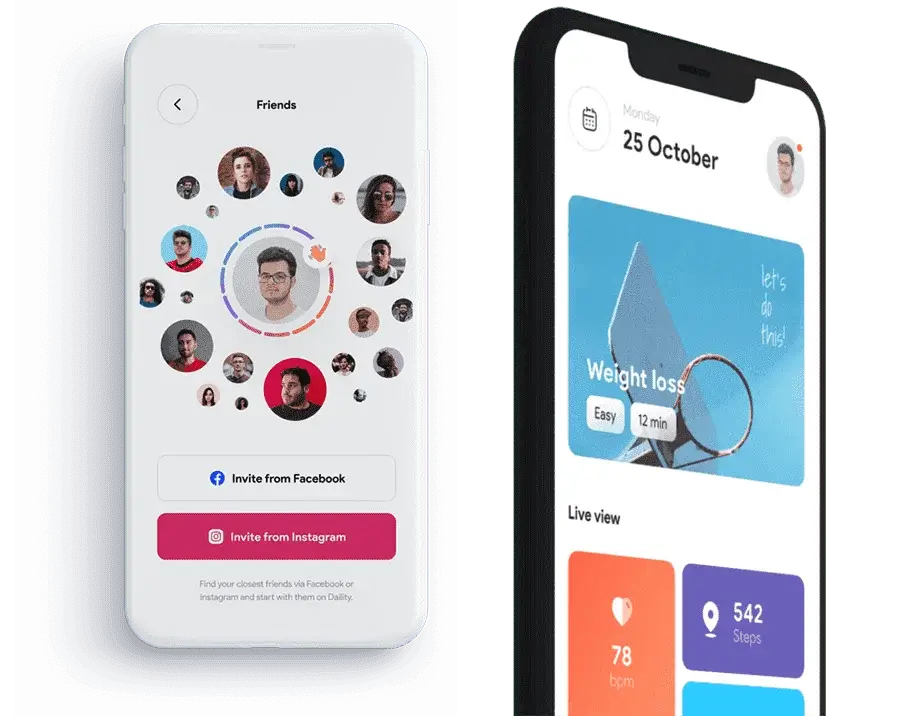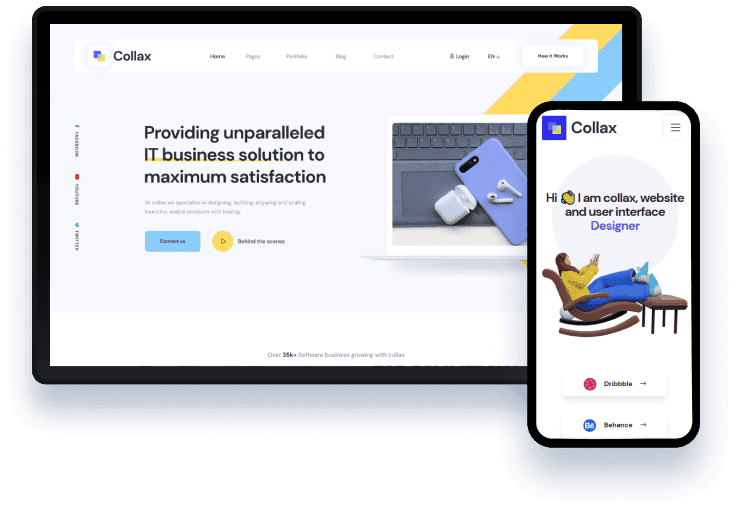How to Choose the Best Mobile App Platform (iOS, Android, Hybrid) for Your Business?
Choosing the right mobile app platform is one of the first and most important decisions you will make for your application. iOS and Android are the dominant mobile application platforms in the industry. However, a third option, hybrid app development, has emerged as an appealing option. The platform influences your time to market, development costs, reach, performance, and even brand impression. The development platform you choose for your app is more than just a technical decision; it has a direct impact on your business goals, target audience, budget, and long-term success. This article provides a thorough summary to help you make a good decision.
Overview of the Mobile App Development Platforms
Mobile App Development: iOS
iOS is a powerful tool for businesses targeting premium customers. With more than 1.4 billion iPhone users globally, it has a strong presence in premium markets such as the United States, Canada, parts of Europe, Asia, and Australia.Key Strengths:
Mobile App Development: Android
With over 3 billion active devices, Android has the largest global market share. It is the preferred option when your company needs widespread acceptance across diverse regions.Key Strengths:
Mobile App Development: Hybrid
Hybrid apps are created with web technologies (HTML, CSS, JavaScript) and then wrapped in a native container. Hybrid development allows you to create code once and deploy it anywhere, combining the efficiency of shared code with native-like user experiences.Key Strengths:
Key Decision Factors To Choose A Mobile App Platform
Target audience & regionWho are you trying to reach? If your core market is North America or Western Europe, and you want to reach a more affluent customer base, iOS is a good choice. For global reach, particularly in Asia, Africa, and Latin America, Android's large market share is unbreakable. If your audience is divided or you need to cover both, a hybrid is the most efficient option.
Cost and Development TimeNative platforms frequently give faster access to device-specific APIs and higher performance for resource-intensive applications. While hybrid frameworks are constantly improving, native still has an advantage in this area.
Maintenance & ScalingOverview of Mobile App Development Platforms
| Feature/Aspect | iOS (Native) | Android (Native) | Hybrid (Flutter/React Native) |
|---|---|---|---|
| Audience Reach | Strong in the US/West | Global, huge in Asia | Both Platforms |
| Development Cost | Higher | Higher | Lower (single codebase) |
| Time to Market | Moderate | Moderate | Fastest |
| Performance | Best | Best | Near-native, very good |
| App Store Process | Strict | Flexible | Similar to respective platforms |
| Updates/Maintenance | Separate code needed | Separate code needed | Easier, update both at once |
| Advanced Features/Hardware | Full access | Full access | Some limitations (improving) |
| Best For | Premium UX, AR, etc. | Mass Market, devices | MVPs, content apps, faster launch |
Case Studies: Industry-wise
Let us apply these factors to real-world scenarios.
Case A: A Boutique targeting the US and Europe
A luxury fashion brand looking for a premium user experience with an emphasis on polished design and smooth in-app purchases will most likely find iOS to be an excellent fit. The greater ARPU and device consistency of the iOS platform are suitable with their business model. However, a hybrid approach could be useful if they need to quickly test the market on both platforms without making a huge initial investment.Case B: E-commerce firm focused on emerging countries
The e-commerce business looking to build a large user base in Android-dominated nations such as India, Brazil, and Indonesia should prioritize an Android-first approach. This maximizes market penetration and accessibility across several devices. A hybrid app is an excellent way to efficiently target both markets.Case C: A startup with a limited budget wants to be present on both iOS and Android
A hybrid solution is the most practical. It reduces initial expenditure, improves time-to-market, and allows for validation before growing.Expert tips for choosing the best mobile app platform
Create a checklist before you begin:When to Go Hybrid: A hybrid solution is best suited for speed, cost-effectiveness, and rapidly reaching a wide demographic.
When to stick to one platform: if your target audience is heavily focused on iOS or Android, and you need to optimize for that user base initially.
Conclusion
There is no single "best" platform; only the best fit for your product goals. iOS is perfect for attracting high-end users in developed markets. Android is particularly effective at mass adoption across varied and emerging markets. Hybrid is the best option for startups or organizations trying to increase reach while minimizing expenses. Ready to design your app, but not sure where to start? Our skilled team can give a detailed assessment as well as a clear roadmap focused on your company's specific requirements. Contact Tomsher Technologies for a free consultation, and let's make your app idea a reality.
Read More: WordPress v/s Webflow: Which is the Best Platform for your Website?By Digital Team. Updated on 22-08-2025
Mobile App Development iOS vs Android Hybrid App Development Best App Platform for Business iOS App Development Android App Development Business Mobile Apps
01-01-1970
Cutting-Edge SEO Strategies Going into 2026
02-08-2025






